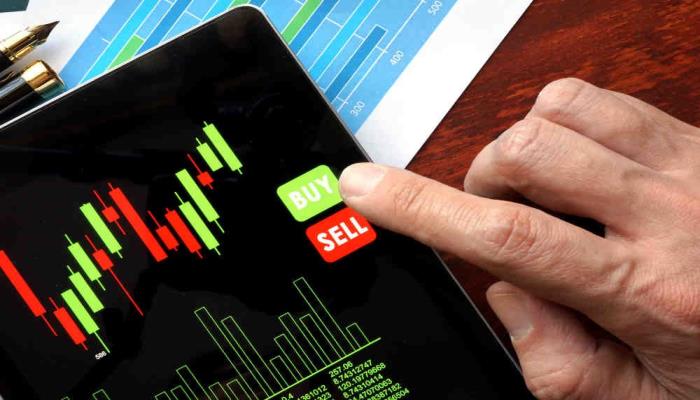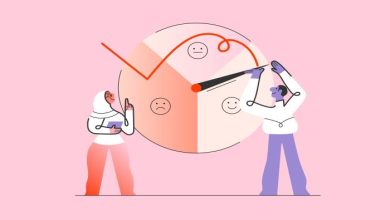4 Things You Need To Start Trading

Entering the trading industry can be an exciting and intimidating experience. It’s critical to make sure you have the resources and expertise needed to position yourself for success when you enter this field. This article will walk you through the four key components you’ll need to start trading with assurance and efficiency.
1. Capital: Fuel for Your Trading Journey
Your trading endeavors rely heavily on capital, the lifeblood that fuels your transactions and comprehension of the markets. Whether you’re dealing with stocks, forex, cryptocurrencies, or any other asset class, having sufficient funds is paramount for seizing opportunities and navigating risks effectively. Equally crucial is equipping yourself with the best laptop for trading, ensuring you can keep pace with market movements and execute trades swiftly and accurately. It’s advisable to start with an amount of money you can afford to lose, though the specific figure varies based on your trading strategy and risk tolerance. This approach safeguards your financial stability, allowing you to weather the inevitable ups and downs of trading without compromising your overall financial health.
Moreover, effective money management is essential to prevent over-leveraging your positions, which significantly increases the potential for substantial losses. Instead, focus on employing appropriate position sizing and risk management techniques to protect your capital and preserve your trading account over the long term. By treating your trading funds with respect and prudence, you enhance your prospects for success and steadily cultivate your wealth through trading endeavors.
2. Education: Building a Strong Foundation
Gaining the information and abilities necessary to negotiate the intricacies of the financial markets via education successfully is the cornerstone of effective trading. Spend some time learning about important ideas like risk management, technical analysis, fundamental analysis, and market dynamics before you start trading. You can study via a variety of materials, including books, trade forums, seminars, and online courses. Additionally, think about asking seasoned traders for mentoring; they can provide insightful advice based on their own experiences.
Furthermore, don’t undervalue the significance of practical learning and hands-on experience. Before trading with real money, open a demo trading account to practice your methods in a risk-free setting and build confidence. Whether you make a profit or a loss on a transaction, see it all as a teaching moment. You can become a more knowledgeable and skilled trader who can make wise judgments and take advantage of market opportunities by consistently increasing your knowledge and honing your abilities.
3. Trading Platform: Your Gateway to the Markets
To effectively execute transactions and have access to the financial markets, one needs a dependable trading platform. Select a platform that provides a large selection of tradable assets, a user-friendly interface, strong charting tools, and real-time market data. Make sure the platform you choose satisfies your trading requirements and preferences, regardless of whether you prefer desktop, online, or mobile applications. When choosing a trading platform, take other aspects like order execution speed, dependability, and customer service into account.
To fully use the possibilities of your selected trading platform, also get acquainted with its features and functions. Discover successful order placement, take-profit and stop-loss setting, chart analysis, and portfolio monitoring techniques till you are at ease and sure of your skills; practice using the site and placing transactions. You can simplify your trading process and concentrate on making well-informed trading selections without needless complexity or distractions by becoming proficient with your trading platform.
4. Discipline: The Key to Long-Term Success
Probably the most underappreciated but crucial component of effective trading is discipline. It entails following your trading strategy, properly limiting risk, and maintaining emotional control in the face of volatility and unpredictability. For your trading activity, clearly define your entry and exit criteria, risk management policies, and metrics for evaluating your success. Adhere strictly to your trading strategy, even if you are tempted to stray from it out of fear, greed, or emotion.
Additionally, while you manage the ups and downs of the markets, practice fortitude and patience. Recognize that trading will always result in losses, and concentrate on keeping an optimistic outlook and a long-term perspective. Acquire knowledge from your failures and errors, and work tirelessly to enhance and modify your trading tactics in response to market input. Over time, you can raise your chances of success and reach your financial objectives by adopting a disciplined trading strategy.
Conclusion
Planning and thoughtful thought are necessary while starting a trading adventure. You can position yourself for success and trade the markets with assurance and skill by making sure you have the required funds, training, trading platform, and discipline. By keeping these things in mind, you can approach trading with patience, humility, and an openness to learning, all of which will help you reach your trading goals.



